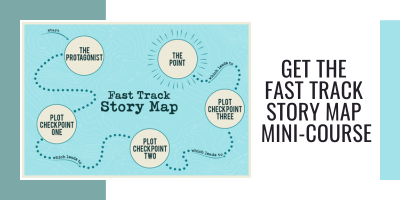 Can you believe 2023 is almost over?
Can you believe 2023 is almost over?If you participated in NaNoWriMo, you're likely taking a well-deserved breath after the writing frenzy! You probably feel creatively exhausted and it might be hard to assess your progress on your novel beyond the word count. That's okay! In fact, you shouldn't try to evaluate your work right after the rough draft, because you're likely just too close to it to see it objectively.
I'm a big fan of Taika Waititi's writing, and his advice for setting aside your rough draft is spot on:
"I will write a draft, and then I'll put it away for a year or so. Even two years or three years. And then I'll come back to it, and read it, and I'll go, 'Who wrote this sh*t?'"
Setting your work aside for a while will help you return to it with fresh eyes, the way your readers will. You'll be able to see plot holes, places you've let go of your reader's hand, and structure or character that needs a bit more development. Being able to view your own work from the perspective of 'who wrote this?', as well as 'I wrote this!' is an invaluable skill to cultivate!
DECEMBER IS AN EXCELLENT TIME TO TAKE STOCK OF YOUR GOALS AND PROGRESS.
Science-backed studies show that practicing self-reflection can boost happiness and well-being, preparing you to set and tackle new year's goals with gusto! After all, the biggest part of setting goals is assessing what you've done.
I've been taking time review this past year, and it has been an illuminating experience. In many ways, especially post-COVID, 2023 was a whirlwind of activity and surprises! Without this assessment, it would be hard for me to view it accurately or take stock of my progress. So I'm spending a little time answering these questions thoughtfully:
1. What were my writing/creative goals for this year?
Just listing out my goals from this past year is helpful! I was surprised to find that I had actually forgotten about a couple of goals I had put on my list back at the start of the year, which is pretty telling.
2. Which goals did I accomplish?
Listing all of my goals and then weighing them against what I actually achieved can help me determine if I am expecting too much of myself or not enough. Also, it can be incredibly motivating to see everything I've achieved in a year listed on paper!
3. Which goals did I not accomplish?
Obviously, the forgotten goals made this list, but it's helpful to list those I remember, and those I consciously ignored, too.
4. For all my goals, what did I expect to feel/attain from accomplishing each?
This is such an important question because sometimes what we think we are getting when we accomplish something is not necessarily the payout we receive. Identifying the true motivation behind each goal helps to make setting new goals more realistic and gratifying.
5. What level of joy/value did I experience for each goal I attained? (assign a number or grade system to this, i.e. 1-10 or A-F)
Here's the meaty bit about doing this assessment. Looking at the things I did this year that sparked joy can be incredibly insightful for understanding the reason for setting the goal in the first place! I'm always surprised at what makes me excited to accomplish and what simply didn't have the payoff I expected.
6. What level of disappointment/penalty did I get for each goal I did not attain? (assign a number or grade)
The goals that make me really bummed to not meet are certainly those I want to explore and perhaps add to my list for next year. The ones I forgot I'd made... well, those can probably go away.
7. Was there any amount of time/tactic I used for the goals I reached, that I did not use for the goals I did not reach? Alternatively, was there a variance in the level of joy and the time spent?
Some goals that brought me the most joy required a smaller-than-expected investment of time. And others required a significant amount of time. Knowing the work vs. value quotient for my achievements is very useful data! Some goals I didn't achieve because they were simply too amorphous - a reminder that structure in goal making, and in story writing, is imperative for success! Likewise, some goals I didn't achieve but invested a lot of time and effort came with a higher level of disappointment.
Whether you triumphed in NaNoWriMo or are in the middle of your 3rd revision, I invite you to assess your writing and creative journey this past year, celebrate your victories, and gracefully acknowledge the unfinished, to set an intentional strategy for 2024.

Love this content?
Subscribe to The Story Guide Dispatch for more!
Find Story Guide



















0 Comments